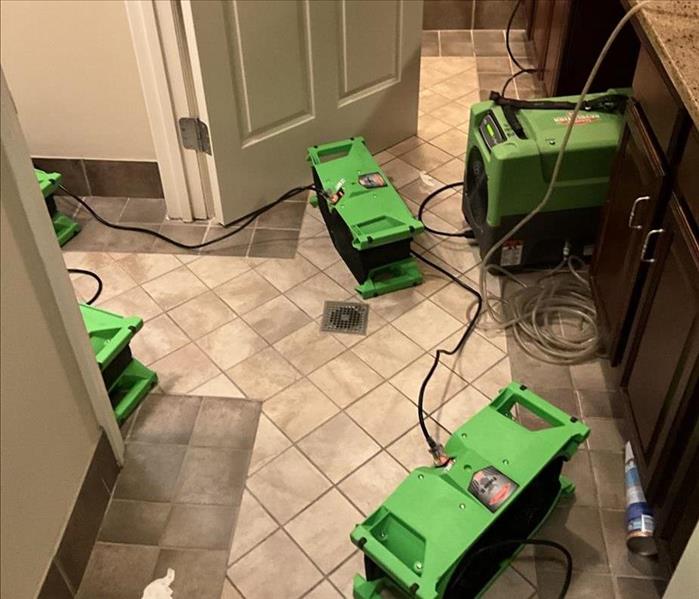Preparing for Hurricane Season: What North Carolina Residents Need to Know
9/18/2024 (Permalink)
 If you need assistance with storm damage restoration, don’t hesitate and contact our team at SERVPRO of High Point today!
If you need assistance with storm damage restoration, don’t hesitate and contact our team at SERVPRO of High Point today!
Hurricane season can be a nerve-wracking time for homeowners and businesses. Understanding what to expect and how to prepare is crucial for minimizing damage and ensuring you and the people around you are safe. This blog will provide insights into the typical hurricane season in the Northeast and offer tips on how to be prepared.
Understanding Hurricane Season
Hurricane season in the Atlantic runs from June 1 to November 30, with the peak occurring between mid-August and late October. The Northeast, including North Carolina, can experience significant impacts from these storms. According to the National Oceanic and Atmospheric Administration, the 2021 Atlantic hurricane season had 21 named storms, making it the third most active year on record.
Typical Impacts on the Northeast
Hurricanes can cause various types of damage, and knowing what to expect can help you prepare better.
Heavy Rainfall and Flooding
One of the most common issues during hurricanes is heavy rainfall leading to flooding. In High Point, NC, this can overwhelm drainage systems and cause water damage to homes and businesses. Flooding is particularly dangerous because it can happen quickly and with little warning.
High Winds
High winds from hurricanes can cause significant damage to structures, uproot trees, and lead to power outages. The strong winds can turn debris into projectiles, posing a danger to people and property.
Storm Surge
Storm surge, an abnormal rise in sea level due to a storm, can lead to severe coastal flooding. While High Point is inland, areas closer to the coast in North Carolina are at high risk for storm surge, which can have devastating effects on communities.
Preparing for Hurricane Season
Preparation is key to minimizing the impact of hurricanes. Here are some steps to take:
Create an Emergency Plan
Having a plan in place is crucial. Ensure that all family members know what to do in case of a hurricane. This includes knowing evacuation routes, having a designated meeting place, and maintaining a communication plan.
Stock Up on Supplies
Prepare an emergency kit with essentials such as water, non-perishable food, medications, batteries, and first-aid supplies. According to Ready.gov, you should have enough supplies to last at least 72 hours.
Secure Your Property
Take steps to secure your property. This includes reinforcing windows and doors, trimming trees and shrubs to prevent them from becoming projectiles, and securing outdoor furniture. Installing storm shutters can provide additional protection.
Review Insurance Coverage
Ensure that your insurance policy covers hurricane damage. Standard homeowners insurance typically covers wind damage but not flooding. Consider purchasing flood insurance, especially if you are in a flood-prone area.
What to Do During a Hurricane
Knowing what to do during a hurricane can keep you safe.
Stay Informed
Keep up to date with weather reports and alerts from reliable sources such as the National Weather Service (NWS). Knowing the latest information can help you make informed decisions.
Follow Evacuation Orders
If local authorities issue an evacuation order, follow it promptly. Evacuations are ordered for your safety, and staying behind can put you at significant risk.
Stay Indoors
If you are not in an evacuation zone, stay indoors and away from windows. The safest place during a hurricane is an interior room on the lowest level of your home.
Taking Action to Protect Your Property
Understanding and preparing for hurricane season is crucial for residents of North Carolina. By taking proactive steps, you can keep damage to a minimum and keep your loved ones safe. If you need assistance with storm damage restoration, don’t hesitate and contact our team at SERVPRO of High Point today!






 24/7 Emergency Service
24/7 Emergency Service